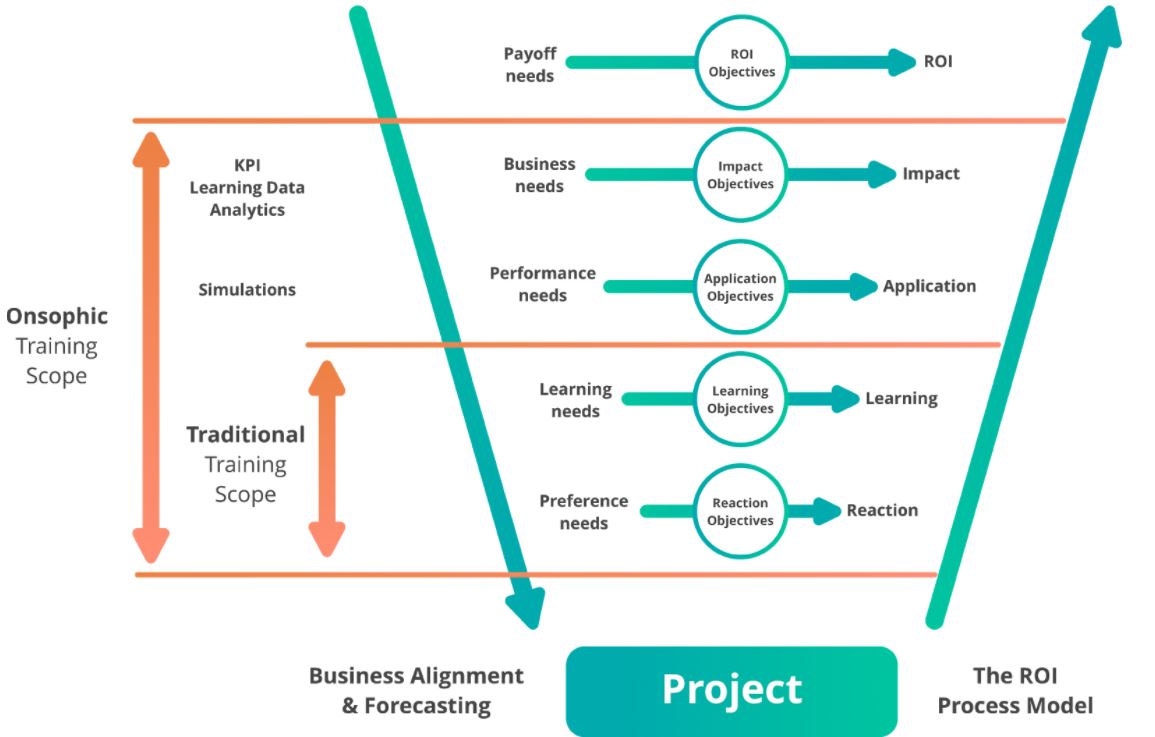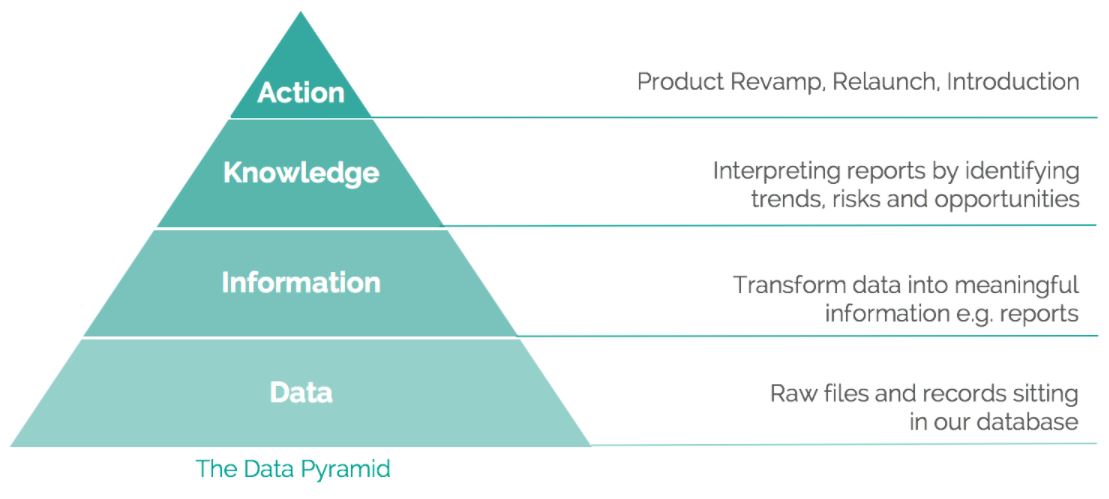Never before has it been possible to collect and transform data from workplace adoption of technology into actionable learning insights.
Drive Change Inside Your Organization
Traditional learning management systems focus on learning analytics regarding the learning needs (see second level of the diagram below), whereas today Onsophic is able to connect actionable learning insights to real business KPIs (see fourth level of the diagram below). Now it is possible to rediscover and unleash your organization’s human potential.

From data collection to action
While data collection is key, the challenge is to move towards information, knowledge and ultimately action. Learning analytics is a term frequently used by both educational and corporate training solutions and usually results in raw stats, reports or basic dashboards showing simple metrics such as course completion, progress, time spent or scores. This can hardly be called analytics let alone be actionable, so it’s important to understand the pyramid of data.

Source: ROI Institute Canada, Based on Kirkpatrick Model
Collection is usually the easiest part of a data strategy. Aggregating to information, harvesting the knowledge and determining what’s actionable become increasingly harder when serving multiple stakeholders such as learners, help desk, instructional designers, and different levels of management. To be able to customize those actions for each of the stakeholder types would be the holy grail of any data-driven training strategy.
Onsophic tracks up to 6 Data Categories for Learning Analytics
Deep learning data and AI continuously amend and improve learner profiles. The weakness of traditional LMSs is that they only combine information from the learner profile with tracking information of accessed training materials. At best, if a form of assessment is used, attempts and scores are also added to the dataset. This limits the data collection to the learner and training content, enabling the display of information regarding progress, completion, score and possibly time spent. Extracting data-driven knowledge on such a limited set is difficult, making it nearly impossible to formulate actions.
The Onsophic platform takes an LMS to a much higher level by extending the breadth of the data with 4 additional categories: communications, triggers, production and user interface. The aggregation and integrated analysis of data across all 6 categories, customized for each stakeholder type, makes the Onsophic platform truly unique.


